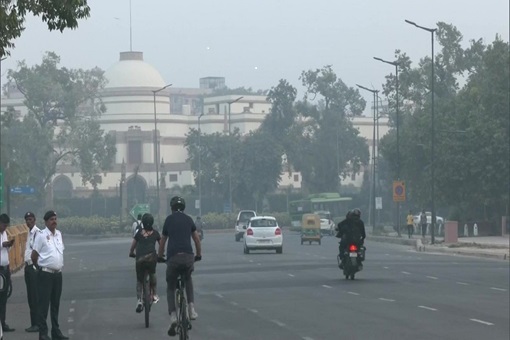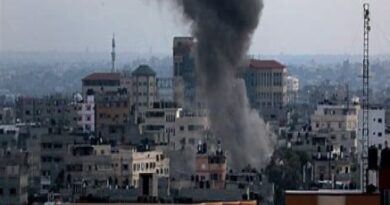Delhi Takes Urgent Action as ‘Severe’ AQI Triggers Restrictions

NEWDELHI: Amid rapidly deteriorating air quality in Delhi, the Commission of Air Quality Management (CAQM), the federal anti-pollution body, has initiated a series of stringent measures under stage 3 of the graded response action plan (Grap). This includes restrictions on private construction and demolition activities, limitations on the movement of BS-III petrol and BS-IV diesel vehicles, and the closure of all government and private primary schools for the next two days in the National Capital Region.
While Delhi had recorded an average air quality index (AQI) of 392 (categorized as “very poor”) at 4 pm, the AQI further dropped to 402 by 6 pm, prompting the CAQM to escalate the response to combat the worsening air quality. Under stage 3 of Grap, state governments are authorized to discontinue physical classes in schools for children up to Class 5 and switch to online classes if they consider it necessary.
The decline in air quality began on October 28, and it has progressively worsened, reaching the “very poor” category. Factors contributing to this decline include local sources of pollution, as the impact of farm fires has remained low due to favorable winds.
In response to these conditions, the CAQM, after analyzing the overall air quality and weather forecasts provided by the Indian Meteorological Department (IMD) and the Indian Institute of Tropical Meteorology (IITM), has invoked stage 3 measures. The statement issued by the CAQM calls for immediate implementation of these measures due to highly unfavorable meteorological and climatic conditions.
While stage 3 measures restrict private construction and demolition activities, BS-III petrol and BS-IV diesel vehicle usage, and close primary schools, they do not apply to public infrastructure projects related to rail services, Metro, airport, highways, flyovers, and power transmission.
Additionally, unlike last year, the ban on four-wheelers has been mandated by states and extended to neighboring towns in the National Capital Region. Violators of these bans will face a fine of ₹20,000. A total of 124 teams will be deployed to enforce these restrictions effectively.
Experts emphasize the importance of swiftly enforcing these emergency-level measures to prevent a further increase in AQI, especially considering the unfavorable meteorological conditions






https://www.telqq.com Telegram群组,Telegram群组导航。收录Telegram上的优质频道和群组,打造一个高质量Telegram导航。TGNAV收录整理了Telegram上的许多优质频道、群组、机器人,帮助用户发现更多优质的群组。